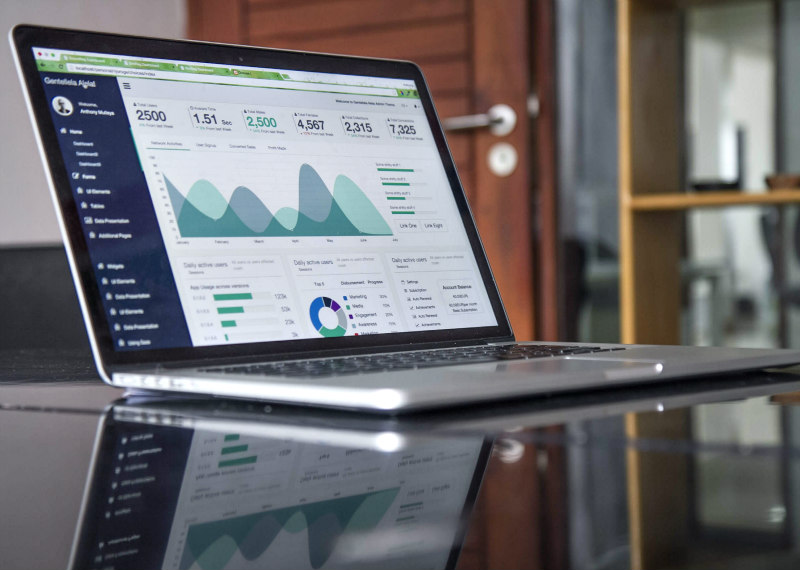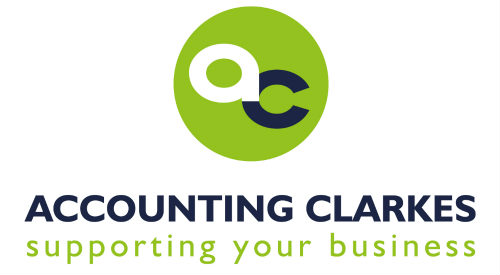
What is Making Tax Digital?
As software and systems are increasingly on the up, we explore what the use of technology means for businesses, accountants and the industry as a whole.
Starting a business, or even maintaining positive momentum in an established business, can sometimes seem like an uphill struggle. Add to that the necessary financial admin requirements such as your company accounts, tax and payroll – and some days can be overwhelming.
Where’s the accountant in digital accountancy?
Finding the right accountant and developing a positive relationship with them is vital to navigating the accountancy and business landscape.
Most will have experienced the annual panic that ensues when the financial year is coming to an end. The one where for a couple of weeks your accountant becomes your right arm and your best friend. A more permanent relationship is crucial to maximising the benefits of this vital service.
Your accountant should know your business inside out; because only then can they advise on the best financial decisions for you. They should be aware of both your successes and challenges. A great accountant can have a positive influence on not just your finances and business growth, but your wellbeing too.
The government is making positive changes
HMRC has also recognised that the industry can, and should, be modernised to reflect a more comprehensive and contemporary positive relationship with your business’s finances.
First Voice, the online publication of the Federation of Small Businesses, emphasises how accounting software can help new businesses manage their finances more effectively. With this said, it also states that according to research published in 2017, around one in six (16%) of SMEs in the UK still use a manual cash book for their bookkeeping.
In addition, research from UK200 Group, an association of UK chartered accountancy and law firms, shows that 23% of SMEs still use manual records.
HMRC is making these changes in an effort to update current processes and systems to better reflect our use of technology.
The UK government department plans to make the tax system digital by 2020. By 2020, all but a few exceptions, must keep digital records and submit digital VAT returns quarterly.
What exactly is Making Tax Digital?
Making Tax Digital (MTD) is the Government’s plan to modernise and digitalise the UK tax system from April 2019. It requires all VAT registered businesses over the VAT threshold of £85,000 to submit their returns using compliant software in place of the current online platform. Over 2 million companies already keep records digitally, and therefore, MTD will support this ongoing trend.
It’s a decision that, in the long-term, will undoubtedly reap endless benefits. From showing clarity to users to increased consumer understanding of their tax situation. And of course, ease of administration from both sides.
The rewards are clear:
- Integrating tax into a single set of business records will make tax easier and more certain; unlocking long-term time savings through simplification
- HMRC can collect and process information affecting tax liabilities as close to real-time as possible
- The new system will enable businesses to get their tax right first time, reducing the amount lost through errors by £600m a year
- MTD will deliver a platform that will support targeted messages such as highlighting reliefs and entitlements, assisting the growth of businesses.
Some pain before gain, initially
Making Tax Digital will force some businesses who currently prefer a manual ‘spreadsheet’ process to move to a software option. The learning process involved in adopting new practices will undoubtedly highlight a few ‘Pain Points’ for some at the start. However, finding the right accountancy firm to help will ensure a sympathetic and seamless transition.
This clarity and understanding create tangible benefits to accessing such software, namely information sharing which increases knowledge and understanding, plus time saving and increased accuracy.
What will Making Tax Digital mean for individuals?
Individuals will be assigned an online Personal Tax Account. HMRC will use this to bring together all the relevant information they hold on each relevant individual.
HMRC can receive information from a variety of sources, which include details of employment income from employers. By making tax digital, it intends to integrate their systems, which automatically updates information in individuals’ Personal Tax Accounts.
Ultimately HMRC wants to remove the current lengthy procedure associated with our annual tax return process. If they already hold information, they will not need us to provide it again.
If I own a business, what does Making Tax Digital mean for me?
Registered businesses with turnover above the VAT threshold will be required to maintain digital records. These records will be used to meet their VAT reporting requirements.
The long-term goal is to extend the regime to encompass income tax (for unincorporated businesses) and corporation tax (for companies), although this is not likely to happen before April 2020.
The government aims to ensure businesses maintain digital records; and that these records are shared digitally with HMRC on a regular basis.
What do I need to do?
If your business fits the necessary criteria to fall within the 2019 changes, you will need to make preparations now.
Do your accounting systems have the capability they need to allow you to fulfil your obligations to HMRC? For example, do they enable you to send the relevant information to HMRC to ensure you meet the relevant deadlines?
It may be that you haven’t used software in your business before and so will need to install it and start using it for the first time. Or you may need to change your digital accounting system to one that better reflects your business.
Even if you’re not going to be part of Making Tax Digital from 2019, there are benefits to installing a digital accounting system if you don’t already have one. Doing so could not only give you a better understanding of how your business is performing throughout the year; it will also allow for more proactive advice and support from your business advisers and accountant.
What does Making Tax Digital mean for accountants?
For many accountants, MTD is viewed as a very positive step towards helping their customers make and save money. By streamlining and automating systems, businesses can be more accurate with their numbers and use this transparency to recognise issues and rectify them before they go too far.
It allows accountants to use their skills to be more involved in strategy, planning and moving a business forward financially; rather than firefighting or spending too many hours resolving problems with taxation.
Software and system support
If you’re currently operating a manual process or indeed a spreadsheet system, then do get in touch as we can help. Our expertise will help ensure you are in a great place ‘systems wise’ from the get-go.
We can advise on the best software solutions out there and help you make the right decisions for your business.
You can find more details on the new regulations in the full VAT notice, but if you have any questions or are looking for support, then contact us and we will be only too happy to answer them.
